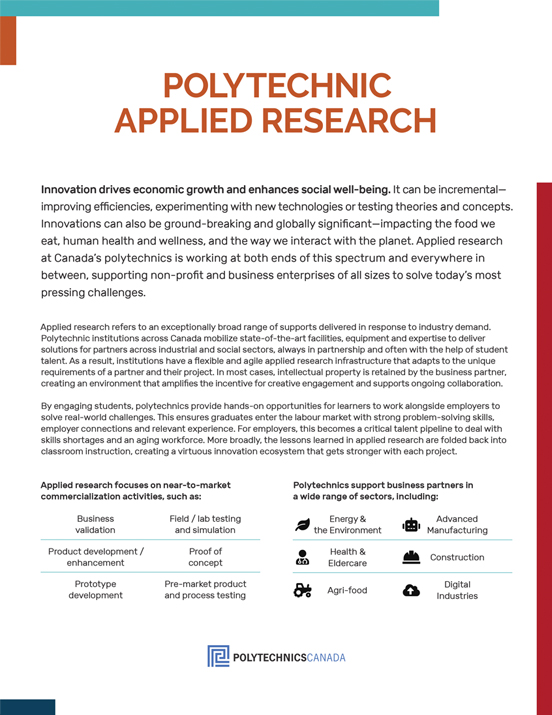The Role of Polytechnics in Tech Adoption
No new idea, concept or technical advancement, whether intended to improve our health, protect the environment or revitalize an industry, can make meaningful impact until there is widespread adoption. Without it, potential is diminished and opportunities are squandered. This is why supporting adoption, particularly among Canada’s small- and medium-sized enterprises (SMEs) who play a critical role in the country’s economic wellbeing, is a crucial step on the innovation journey.
It will come as no surprise that many SMEs struggle with technology adoption. Despite ongoing efforts and good intentions, SMEs have competing priorities for limited resources. Government grants, tax incentives and programs that offer support are important avenues for democratizing technology adoption.




